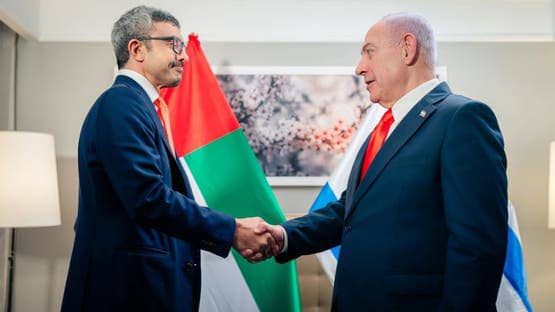In a meeting with Netanyahu, the Emirati Foreign Minister emphasizes the need for a permanent ceasefire in Gaza

As part of his participation in the current session of the United Nations General Assembly in New York, Emirati Foreign Minister Sheikh Abdullah bin Zayed Al Nahyan met last Friday with Israeli Prime Minister Benjamin Netanyahu. During the meeting, he reaffirmed the UAE's firm position on the necessity of ending the war in the Gaza Strip and achieving a permanent and sustainable ceasefire.
Sheikh Abdullah bin Zayed emphasized during the meeting the "need to avoid further loss of life and to put an end to the crisis and the tragic conditions faced by civilians in the Gaza Strip." He also pointed out that these conditions "require all possible efforts to deliver humanitarian aid without obstacles and in a sustainable manner."
In this context, the Emirati minister expressed his country's support for international efforts aimed at "releasing all hostages and detainees," while stressing at the same time the "importance of international cooperation to counter extremism and terrorism in all its forms, and to protect the lives of all civilians."
Sheikh Abdullah bin Zayed reiterated the UAE's consistent approach in supporting all efforts aimed at achieving comprehensive peace based on the "two-state solution," considering that this solution "contributes to meeting the aspirations of the Palestinian and Israeli peoples and all the peoples of the region for a future characterized by lasting security and stability."
He also pointed out the "importance of promoting the values of tolerance, coexistence, and human brotherhood in the region, in a way that fulfills the aspirations of its peoples for security, stability, prosperity, and sustainable development."
This meeting comes at a time when the UAE has taken a clear stance regarding regional developments, as the UAE Assistant Foreign Minister, Lana Nusseibeh, previously stated that "Israel's desire to annex the West Bank to its sovereignty is a red line for her country," pointing out that this "seriously undermines the spirit of the Abraham Accords."